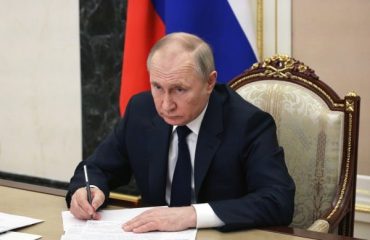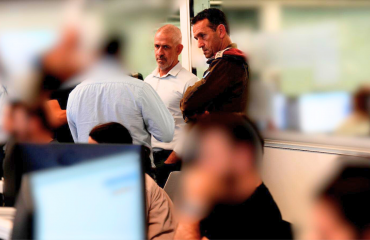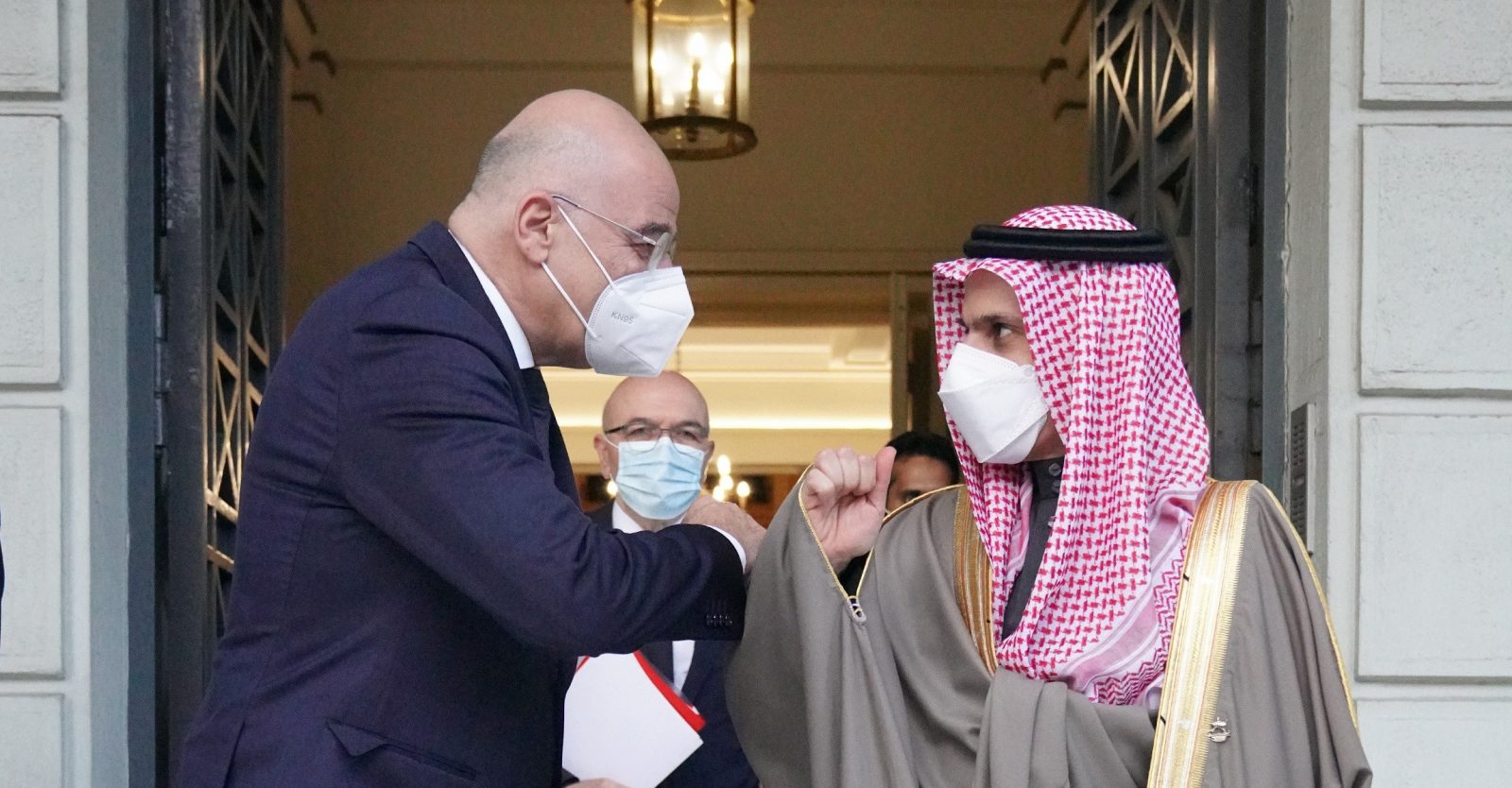
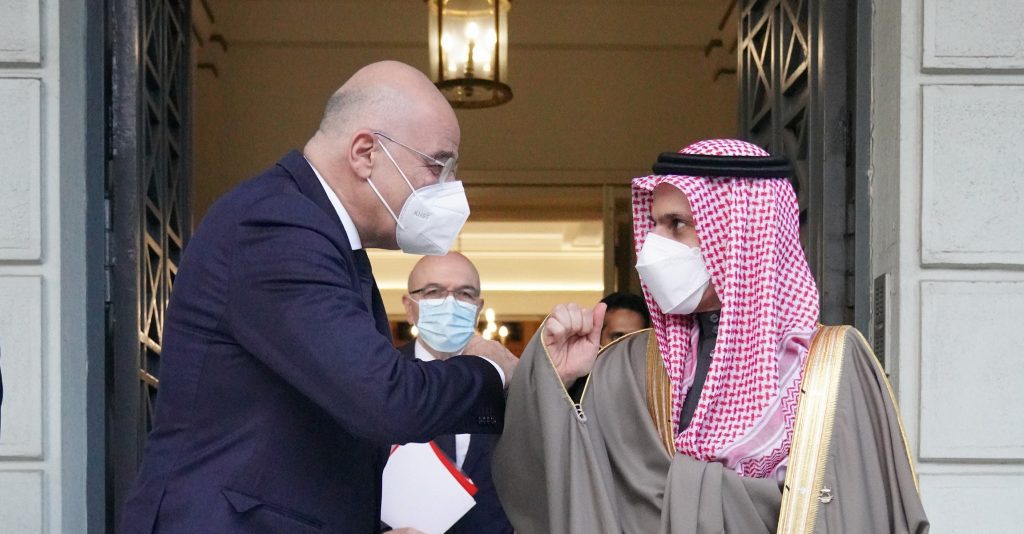
As a Turkey struggling against increasing unemployment and cost of living started discussing how to name a future astronaut after President Tayyip Erdoğan called on the nation to “look at the space,” there was a meeting under the name of co-operation in the eastern Mediterranean in Athens. Greece hosted the “Philia Forum”, the “Friendship Forum” on Feb. 11 in a bid to display that economic cooperation is possible in the eastern Mediterranean without Turkey’s participation.
Greek Prime Minister Kyriakos Mitsotakis said in his opening remarks that the forum is “also open to Turkey.” However, it was open that Turkey would not attend such an event it sees as an attempt to build an axis against Turkey at a time when the Cyprus issue is lingering.
Thus, Turkey did not take part in the forum hosted by the Greek Foreign Ministry. Instead, Turkish Foreign Ministry spokesperson, Hami Aksoy, made a strong and relatively long statement. The Philia Forum, according to Aksoy, was “undermining” the efforts for regional cooperation at a time when Ankara was taking new steps in the Aegean Sea and the eastern Mediterranean.
He called on the “other countries” participating in the Forum “not to fall victim to the schemes of others,” apparently the Greek-Greek Cypriot duo.
But who are the participants?
Let’s look at who attended the meeting and who did not:
Participants are as follows: Greece, France, Greek Cypriot Republic, Egypt, Saudi Arabia, Iraq, United Arab Emirates and Bahrain.
You are right, Saudi Arabia, Iraq, UAE and Bahrain do not have coasts on the Mediterranean, they have a coast on the Persian Gulf.
Although France is not in the eastern Mediterranean region, it is an important power of the Mediterranean.
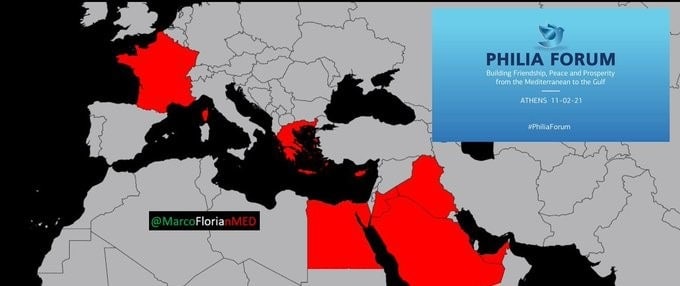
So which countries other than Turkey did not attend the forum. Let’s leave Syria hit by the civil war and Lebanon and Libya in disarray aside. But Italy, Israel and Tunisia were also absent. And Spain, another Mediterranean power like France.
It is obvious that the reason for Persian Gulf Arab countries to participate in the Forum is to hurt Turkey. The Turkish Foreign Ministry refers to these countries and France when it says the “other countries.”
Macron and Erdoğan use similar tactics
Erdogan’s policy to benefit from the conflict in both the country and abroad are known. It is understood that French President Emmanuel Macron wants to take a similar path, utilizing such conflicts ahead of the 2022 elections.
However, Israeli Prime Minister Binyamin Netanha, who follows a similar line, avoided this time getting involved in the eastern Mediterranean debate despite a recent meeting with Mitsotakis. I don’t think the corruption investigation he faced had any effect on this. This might be a signal that he wants to ease the ongoing tension with Turkey.
Still, the Greek and Greek Cypriot governments, who have already spared the EU support for oil and gas exploration off Cyprus, now have the intention to extend this support to other areas through France. They might also want to benefit from the obvious anti-Turkey stance of the Arab nations led by Saudi Arabia.
The US position
Prominent figures in the Joe Biden administariton, including Secretary of State Antony Blinken are against Turkey’s eastern Mediterranean policy. This is an element that increases the tensions in already Turkey-U.S. relations.
However, the U.S. does not want to get openly involved in the Greek game in the field despite problems such as Turkey’s purchase of S-400 missile systems from Russia, the Washinton retaliation not the deliver the already purchased F-35 jets, the YPG dispute, and the Fethullah Gülen and Halkbank/Reza Zarrab cases. This was seen in a recent Black Sea navy drill in the Black Sea, proof that the NATO relation between the U.S. and Turkey continues. U.S. Ambassador to Ankara David Satterfield posted a Tweet praising the joint exercise of two U.S. missile destroyers in the Black Sea with two Turkish frigates and Turkish warplanes.
Still, a letter by U.S. senators to Biden against Turkey and the fact that an expected Biden-Erdoğan contact has not been made yet are sources of tensions.
It is clear that democracy and human rights issues will be on the agenda in the first contact of the two leaders; this was what happened in Biden’s contact with Chinese leader Xi Jinping. On the other hand, it is known that the U.S. put aside democracy and human rights issues for its own interests in the past.
Diplomacy is complicated. With this perspective, it is possible to say that Greece’s initiative of Philia, the Friendship Forum, was a diplomatic comedy.
